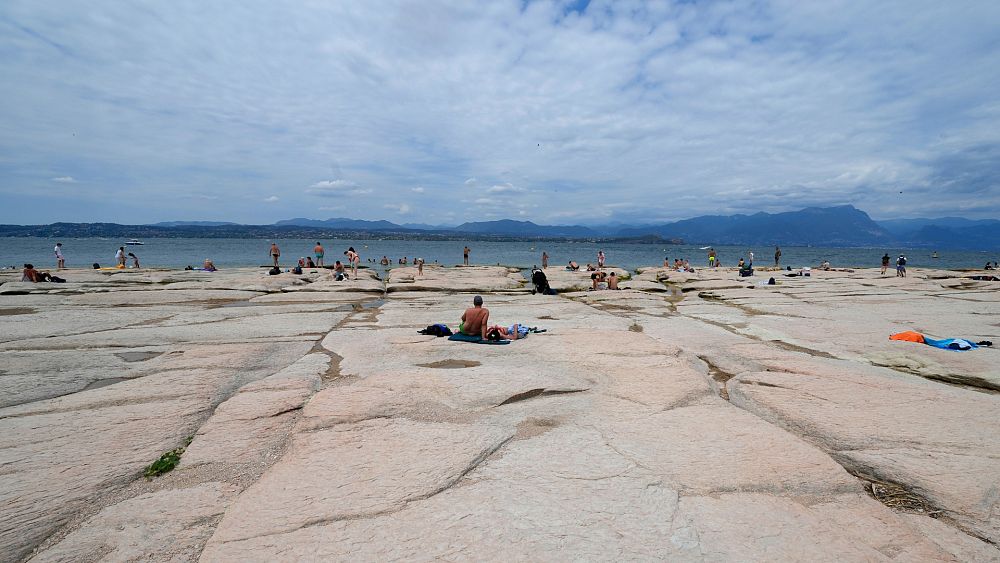Alarming pictures of dry rivers, empty lakes and brown grass are becoming all too common. Last year in Europe was exceptionally hot and, after little rain this winter, the situation hasn’t really improved.
Many of the places suffering the worst effects of this prolonged drought are also popular holiday destinations.
In Barcelona, Spain tight restrictions on water use have been introduced as the region teeters on the brink of a drought emergency.
Large parts of Tuscany in northern Italy have said that swimming pools can’t be topped up with fresh water between May and October.
France’s driest winter since 1969 left Lake Montbel, tucked at the foot of the Pyrenees mountains and usually full of sparkling turquoise waters, muddy and dried up. And officials in the Balearic Islands have warned they could run out of water this summer.
If you have a holiday booked in one of these drought-stricken places, you might be considering whether it's still a good idea to go.
Here’s what the experts say.
Should we still travel to places suffering from drought?
“First, I would always seek to follow the advice that has been given by the place itself,” says Ben Lynam from sustainable travel charity the Travel Foundation.
“They will better understand the situation than anyone else and will understand whether or not welcoming visitors is an appropriate thing to do.”
This means checking travel advice from local tourism boards and official government sources to make sure that you know the current status of the situation.
If you do choose to visit destinations like Barcelona or northern Italy, keeping up to date with what restrictions are in place is a good idea too. Fountains could be turned off to save water, pools and water parks closed and certain kinds of transport might not be running.
Last year, communities around Lake Garda in northern Italy introduced a ban on filling private swimming pools, for example. This year the local tourism board is preparing a campaign to raise tourists’ awareness of the issue.
Ignoring the rules is unlikely to make you popular with the locals where you’re visiting. A resident of Castellcir, just north of Barcelona, told us earlier this year that one of their biggest concerns was people coming from abroad and ignoring restrictions. Particularly those put in place to prevent wildfires.
“Even though you can't have fires and it's against the regulations, they have barbecues,” she said.
What should you think about before booking a holiday?
It isn’t necessarily the responsibility of travellers to try and fix what is wrong with tourism in the places that they visit. Ben says they can do their best to think about what impact they are having, however.
When it comes to water, tourists generally have a much bigger footprint than locals. Five-star hotels usually use more water than other lower-rated accommodations. And those with water parks or spa facilities obviously also put more of a strain on resources.
The biggest problems often coincide with peak season - the hottest months of the year for many places. Booking out of season instead could mean easing your burden and comes with added bonus of getting away from the crowds.
“Have a considered think about the places that you're staying at and the activities that you're thinking about doing in that place. Be aware of that footprint that you’re likely to have in a destination,” says Ben.
Think about your impact beyond Barcelona
While the water crisis in Europe has brought these questions to the front of our minds, it’s worth considering that many other destinations around the world also face risks from tourists.
In Bali, for example, tourism is putting pressure on water resources in a different way. Overuse of groundwater by hotels was partially responsible for seawater incursions into reserves in recent years. That meant drinking water contaminated with salty water.
Tourism has a big footprint in popular holiday locations around the world and not just for water consumption. Accommodation can inflate the price of housing for locals. Managing the waste visitors create can be hard if systems aren’t able to cope with the volume.
Each place has its own social and economic boundaries which - if repeatedly crossed - incur a cost to the destination itself or to residents. It even can mean having to improve or change infrastructure to deal with the burden of visitors at peak times.
“It’s quite convenient for the tourism industry to see this as an externality, which they do,” Ben says.
“Very few companies feel like they need to take responsibility for any of these externalities because why would they if they're not being directly told to do it?”
Someone has to pick up the bill, he adds, whether it's monetary or otherwise.
How can we become better tourists?
Ben suggests that, before you choose your destination, you educate yourself about local issues and pressures that the place is facing. Ask your travel agent and do your own research. He recommends the World Economic Forum’s Travel & Tourism Development Index as a good tool for this.
If you’re short on time, you could search for an annual list of the top 100 green destinations.
“We tend to want to go to places that are beautiful and special and fragile and therefore understanding those issues is important,” says Ben.
“I'm not really hugely fond of saying to people that they should or shouldn't go anywhere, but I would suggest it is pretty vital before you do anything else to understand the issues.”
If you don’t think it's a good idea after checking out all of this information, then don’t book.


